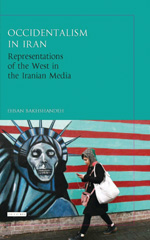Occidentalism in Iran
248 p.
Negative portrayals of the West in Iran are often centred around the CIA-engineered coup of 1953, which overthrew Prime Minister Mohammad Mosaddeq, or the hostage-taking crisis in 1979 following the attack on the US embassy in Tehran. Looking past these iconic events, Ehsan Bakhshandeh explores the deeper anti-imperialistic and anti-hegemonic roots of the hostility to Westernism that is evident in the Iranian press. Distinguishing between negative and outright hostile perceptions of the West - which also encompasses Britain, France and Germany - the book traces how the West is represented as the `Occident' in the country's media. From the Qajar period and the Tobacco protests of the late nineteenth century to the ill-fated Anglo-Persian Treaty of 1919, through to the 1953 coup and 1979 hostage crisis, Bakshandeh highlights the various points in history when misinterpretations and conflicts led to a demonisation of the `other' in the Iranian media. The major recent source of contention between the West and Ira
n has of course been the nuclear issue and the resultant regime of sanctions. By examining how this and other issues have been represented by the Iranian press, Bakshandeh offers a crucial and often-overlooked aspect of the key relationship between Iran and the West. [Publisher's text].
Special access authorizations may apply; please contact us for further information.
-
Información
ISBN: 9780857725486


